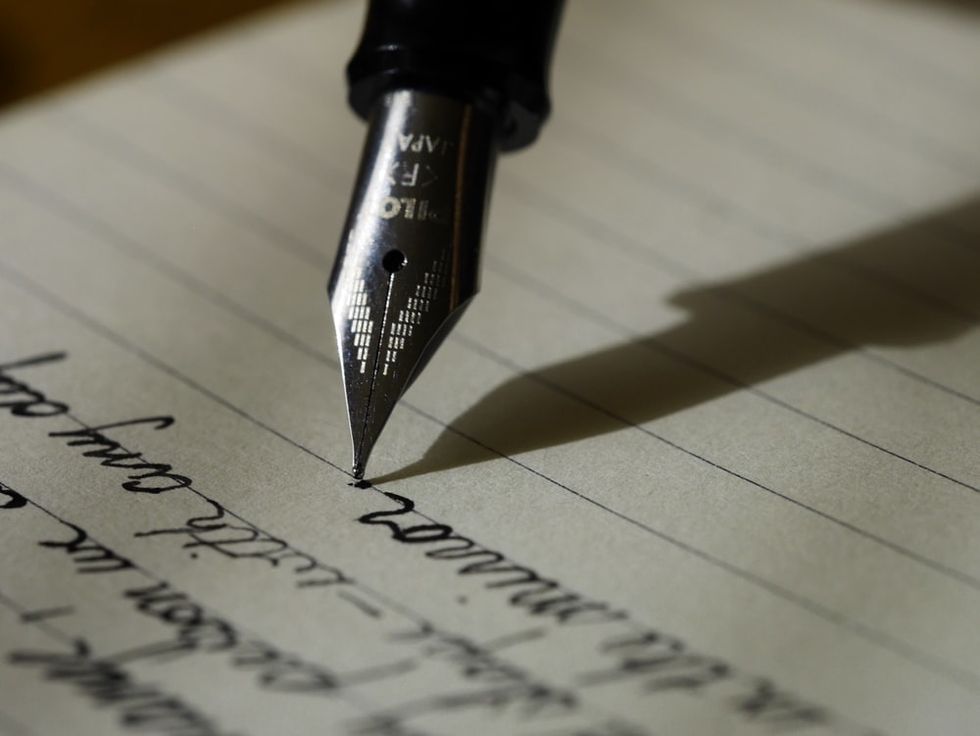"Who did you write this for?"
This question has haunted me for the past several days. It's something that I've always considered, but never something that I've had the chance to verbalize a response to.
It was asked of me during the talkback that was held after the reading of my new play, Outcasts. You can read about the show here.
Asking a writer to share who they wrote their work for is an insanely personal question. One that you can rest assured they have wrestled with. Sometimes we don't get to choose the stories we tell; sometimes it just pours out of us like a spring. We remove the cap and allow the water to flow freely. That cap may have been put there for a reason. To suppress a truth or to block out some traumatic event.
Whenever they make the decision to put pen to paper, that writer has agreed to lift back the veil and share a part of them with the world. It's a deeply intimate act, writing.
My play, which began as a short story when I was 13 years old and was then subsequently adapted into a musical with a friend during my high school years, and now once again adapted into a play following the conclusion of that partnership, has been written for different reasons. Although the reasons may have changed with each iteration, one thing has remained consistent.
It was always written for me.
F. Scott Fitzgerald said this quote once long ago, and I came across it when I directed The Great Gatsby in my senior year of high school.
"You write something not because you want to say something, but because you have something to say."
I had something to say. Something burning deep within me. The short story that I wrote, entitled Outcasts, was about a young boy left behind by his group of friends. Greed and popularity had affected their relationships; I wrote it the summer that I stayed with my grandparents. I wrote it because that 13 year old boy was struggling. 7th grade had been a difficult year; it was a year of transition in a lot of ways. I needed an escape, so I wrote a story about someone who had it worse than me.
In high school, when my friend and I decided to write a musical based on the short story, I was also struggling with my identity. Who was I? Who did I love? The story of Outcasts became one of suppression; the story was about high schoolers who had superficial problems. One wanted to be popular. One just wanted a friend. One wanted to tell their crush how they felt. I wrote these characters once again as a distraction.
People made jokes about the show. The writing was bad. It didn't seem real. I denounced their claims, being the angsty teenager that I was. They just didn't get it.
Only, it was me who didn't get it.
I was so afraid of who I was, of who I might be that I wasn't honest about these characters. Who they were was hidden behind a mountain of subtext. I convinced myself that none of the characters were gay because that just "wasn't the story I was telling".
But it was because I wasn't comfortable with myself that I didn't allow for my characters to be comfortable with themselves.
This show is not just a play I wrote. It wasn't just a story I spun to entertain.
I wrote it so that way I could figure something out about myself. So I could learn and maybe grow.
I'm 20 years old now. I'm proud of who I am. This year, despite the absolute disaster that it has been as a whole, has truly been a blessing in disguise in a lot of ways. I was able to slow down and really evaluate where I have been these past 20 years. I was hiding parts of me, parts that didn't need to be hidden.
This play, this version of Outcasts, is the thing that I am most proud of. It is honest.
Just as the characters learn to embrace their realities and accept that life isn't going to be perfect, I have done the same. I wrote this play for that boy who struggled to accept his reality.
And now, I will continue to use my pen to help others to do the same.











